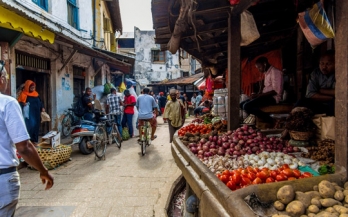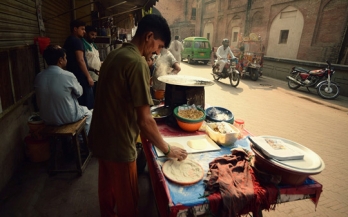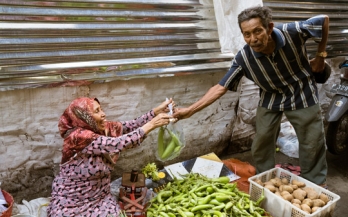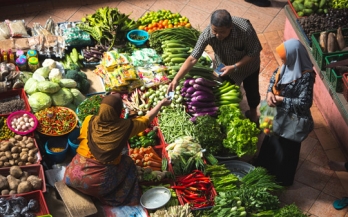Food fortification is implemented to increase intakes of specific nutrients in the diet, but contributions of fortified foods to nutrient intakes are rarely quantified.
The number of people living in urban environments is growing at a rapid rate. Urban living fundamentally changes how people eat, as they are more reliant on needing paid employment and are more limited with growing their own food. This shift towards more urban living is also seeing big changes in food environments for most people, and what food is available, affordable and accessible to them.
Food systems are essential to food and nutrition security. They are also major drivers of economic, environmental, and social development and can be positive forces for urban development. This is critical, as increasing urbanisation of the global population is shifting the relative burden of poverty, food insecurity, and malnutrition to cities. To keep up with this growth, greater urban infrastructure, are required.
In 2016, Tanzania put in place a nutrition action plan that would seek to go beyond previous action plans and strategies. The Prime Minister’s Office took the lead in developing a nutrition action plan that not only had ambitious goals and targets but also explicitly called on other sectors to join the country’s fight against malnutrition.
Street foods - ready-to-eat foods or beverages that are sold by vendors in the street or other public places - play an important role in contributing to daily nutrition and ensuring food security worldwide. India has a rich tradition of street food vending, much of it taking place in urban areas and accessed by people from all socio-economic backgrounds.
Foodborne illnesses contribute to the burden of diseases worldwide. Ensuring food safety is therefore essential to fight malnutrition in all its forms. In Pakistan, the Punjab Food Authority (PFA) was established in 2011 with the responsibility for ensuring the safety and quality of all food items and products in the province through raising awareness and enforcing food hygiene and quality standards.
This paper considers whether Public-Private Partnerships (PPPs) focused on improving diets and nutrition can simultaneously advance public health nutrition goals and business goals. Discussion around the efficiency of PPPs is polarised in the field of nutrition.
The COVID-19 pandemic and associated control measures have been having far-reaching effects on societies worldwide, and food systems have not been spared. To better understand these impacts, GAIN and partners, including the Scaling Up Nutrition (SUN) Business Network, undertook a survey of over 350 food system SMEs in 17 countries in early May 2020, aiming to assess the impacts of the COVID-19.
Animal-source foods (ASF; meat, poultry, fish, dairy, and eggs) have attracted considerable attention for both their role in diets and their environmental impacts - and their production also plays an important role in livelihoods, particularly in low- and middle-income countries (LMICs).
Information on the coverage and consumption of biofortified foods is critical to assess the performance and potential for impact of programmes. The objective of this study was to develop and test methods for assessing the coverage and consumption of biofortified foods and their contribution to nutrient intakes of children and women of reproductive age.










